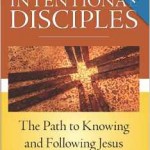Dr. Greg Popčak has a must-read analysis of a discusson between the NYTimes’ Ross Douthat, and Father James Martin.
Returning to Fr. Martin’s analogy, Kasper’s idea is the equivalent of saying, “It will always be against the law to exceed the speed limit, but from now on, anyone who drag races on this strip of road will simply have to say, ‘I’m sorry’ to the police officer when stopped and then be allowed to continue on their way.”
This is an example of a “pastoral practice” that undermines “the law”–in this case marital indissolubility– in everything but name. To be honest, “progressive Catholics” came out of the Synod looking like they think themselves a bit cleverer than everyone else, and acting like they could “win” the debate simply by pretending that any objection to obvious attempts at doctrinal work-arounds was just a case of cold-hearted, retrograde traditionalism.
Alternatively, I would like to suggest that it is possible to want a more compassionate approach to pastoral practice that simultaneously does not throw doctrine under the bus either in spirit or in truth. I would like to challenge reformers and traditionalists to seek those solutions instead of clinging, each to his own cause celebre, and using this latest discussion as yet another opportunity to fight their endless, ecclesiastical, Cold War proxy battles.
We keep seeking immediate solutions by dropping either end of the tension we feel when the Church’s teaching touches our painful human experiences. We want to either resolve the tension by 1) eliminating the teaching or 2) denying the reality of the human experience.
The life-giving, life-transforming approach lies in holding to both, and letting the tension (and the Holy Spirit) fuel and illuminate our search for the way forward.
In the end, we either believe God is really for us — and therefore, the Church’s revealed teachings (those which are not just disciplines that are open to change) are designed to bring us to our “greatest happiness”(Newman) — or we think of them as just “rules”.
But that does take a strong faith, and considerable formation and support by the Christian community.
Part of the problem is that the Christian community as a whole isn’t walking with the ones who are in the midst of that pain, because we — our love, our presence, our prayers, our resources — are the large part of God’s solution for the human being overwhelmed.
No one can cover everything in a single post, but I like Popčak’s opening attempt. Read the whole thing.









